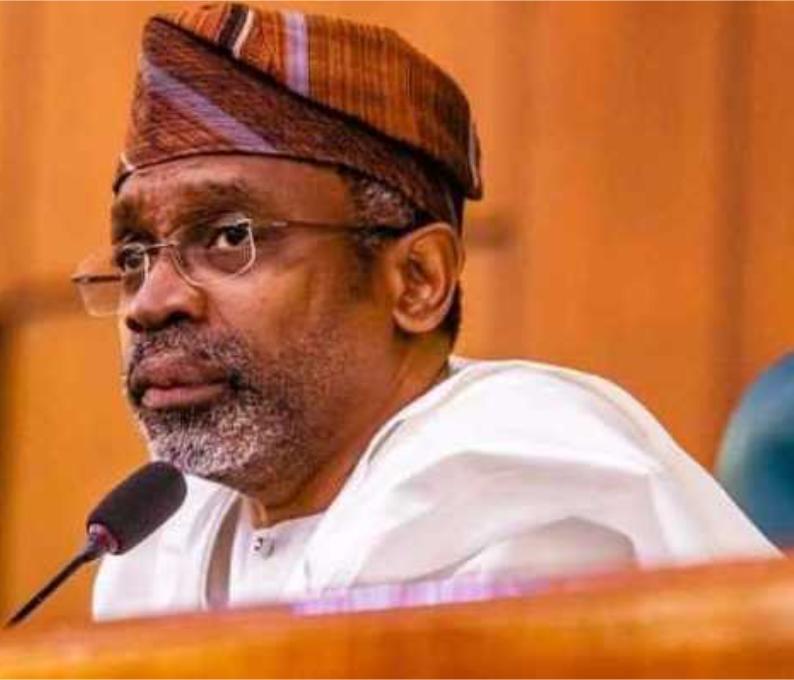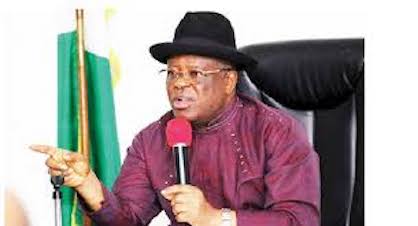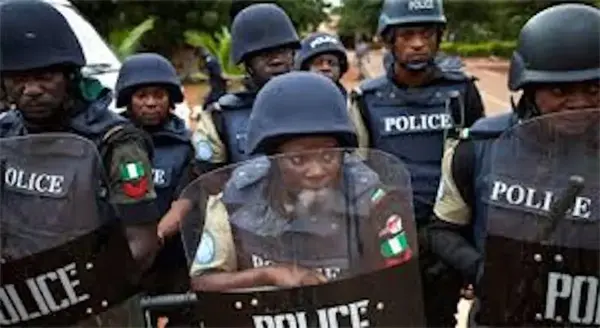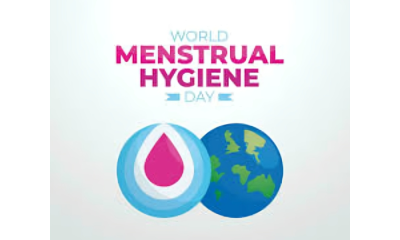COVER
Local Government Autonomy not Practicable – Gbajabiamila

…Indicts State Governors for killing it
By Martin Paul, Abuja
The Local Government Autonomy which has dangling for years in the National Assembly (NASS), yesterday suffered another setback as the House of Representatives claimed that state governors denied its realisation.
Speaker of the House, Femi Gbajabiamila said that the realization of the autonomy of local government councils was dependant on the people.
He stated at a two-day capacity training for the newly elected councillors and local government council chairmen from Aniocha/Oshimili Federal Constituency of Delta state.
The training was organized by the House of Representatives minority leader, Hon.
Gbajabiamila said that the autonomy of the third tier of the government rested on the people at the grassroots, adding that the National Assembly had successfully amended the constitution for the purpose, but was turned down by states.
“The Minority Leader of the House is here with his councillors of his local government, from his constituency to train them on leadership. “We talk about training all the time but who are we training and what are we training them for? This is leadership training for councilors and I thank Elumelu for thinking about this.
“This institute has been in the making for a long time and I believe at the end of the exercise, they would have received a lot of education on what leadership is all about. “Some people are born leaders, some learn to acquire leadership but either way, whether you’re born a leader or acquire it, you have to go do that training exercise to be able to horn your experiences and qualities you have in order to maximize your skills.
“What better place to start than with the local government councillors. As you all know, that is the bedrock of our society.
“It’s not for us as legislators to do that. I’m sure you’re surprised but it’s actually for the people to address, the reason being, we have a constitutional amendment.
“We will throw it to the people and they will make their decision. We did it the last time but we went back to the states and we couldn’t get the 2/3rd.
“There’s a process. We followed due process. We amended it last time but two-third of the States didn’t agree with us. So it’s the people that will decide whether they want autonomy or not. “We will do what we need to do as the constitution provides”, Gbajabiamila said.
Gbajabiamila also underscored the importance of giving recourse to the principle of separation of powers, asking the newly elected councillors and Chairmen to be bold in discharging their constitutional mandates even at the risk of offending some people.
“I’m just going to have a little interaction with you because a lot of things are misunderstood when it comes to local government level of government.
“Many people believe and say that there are three tiers of government. Yes, there are three tiers of government. But do we understand what a tier means?
“A tier means that there are different layers. And those layers are independent and they check each other. Many people believe there is a separation of powers.
“Let me ask quickly without trying to embarrass any of the Chairmen or any of the Councillors. What do you understand your role to be in government, constitutionally? “Does anybody have an answer to that? I don’t think so, but we all have a general understanding.
“But many of us are not bold enough when we are actually told the specifics of what our roles are because we are beholding to whoever and I said this at the risk of respecting the powers of State Governors, the federal government, and in also balancing it on understanding the powers within these responsibilities of the local government.
“So, there’s something called ultra vires in law and that concept cuts across everything including governance. I as a president cannot interfere in your work, constitutionally given to you by the Constitution at the local government.
“Neither can you do what the state Governor is supposed to do. “So, when we talk about separation of powers, most time people understand that concept to mean executive, judiciary and the legislature but that’s a very narrow interpretation of separation of powers. “That is the horizontal separation of powers.
“There are two types of separation of powers – the vertical and the horizontal. The vertical separation of powers is what concerns you. “And that is the federal, the state and the local government. It is what makes any sane society work.
“We all try to model ourselves and look at America, look at Germany, look at several other countries not realizing that or understanding that they have clearly defined the roles of everybody and the people who defined this role did it for a purpose.
“So when you go outside the rules that are defined and everybody jumps into everybody’s role will you get what is chaos. But how do you now realize and go back to what we talked about, leadership? You have to be bold even sometimes at the risk of offending some people.
“For some people, they argue that the local government of governance at the local government level is probably the most important in any democracy because you are the ones that are in touch with the people that matter – people at the Grassroots”, he said.
COVER
CBN Retains Interest Rate at 27.50%

By Tony Obiechina, Abuja
The Central Bank of Nigeria (CBN) Monetary Policy Committee (MPC) has again retained the country’s interest rate at 27.50 percent.The governor of CBN, Olayemi Cardoso, disclosed this at a press briefing on Tuesday after the 300th MPC meeting in Abuja.
“The committee unanimously agreed to retain MPR at 27. 50 percent,” he stated.Cardoso also announced that the MPC members decided to retain the Cash Reserve Ratio (CRR) at 50 basis points for commercial bank and 16 percent for mortgage bank, the liquidity ratio (LR) at 30 percent, and the asymmetric corridor at +500/-100 basis points around the MPR; other monetary policy decisions were retained. He justified MPC’s decision to pause the rate hike on the easing of Nigeria’s inflation rate to 23.7 percent in April.Last week the National Bureau of Statistics consumer price index showed that the country’s inflation dropped by 23.7 percent.In February, the MPC retained the country’s interest rate at 27.50 percent as inflation cooled off.COVER
Tolling Begins December as Lagos-Calabar Coastal Highway Nears Milestone — Umahi

By David Torough, Abuja
Minister of Works, Senator Dave Umahi, has announced that Section 1 of the Lagos-Calabar Coastal Highway will be tolled starting December 2025, marking a critical turning point in the project’s phased completion and a bold move to recoup investment on one of Nigeria’s most ambitious infrastructure undertakings.
The disclosure came during a feature interview for a forthcoming State House documentary marking President Bola Tinubu’s second year in office. According to Umahi, more than 80% of Section 1—stretching 47.47 kilometres from Ahmadu Bello Way in Victoria Island to the Lekki Deep Sea Port and ending at Eleko Junction – has been completed.Tolling on this section, he said, will inaugurate a new era of road financing and regional development.A statement by Bayo Onanuga, Special Adviser to the President on Information and Strategy quoted the minister as saying: “By December, we will begin tolling Section 1 of the Lagos-Calabar Coastal Highway.“We project a 10-year return on investment. This is more than a road – it is an economic corridor with solar-powered lighting, CCTV surveillance, and carbon credit benefits.The highway, a six-lane concrete-paved expressway, is one of four transformative infrastructure projects championed by President Tinubu’s administration.Others include the Sokoto-Badagry Superhighway, the Trans-Saharan Trade Route, and the soon-to-be-launched Ogun-Ondo-Niger Corridor.Collectively, they represent a massive federal push to unlock regional economies and deepen national integration.As of May, the ministry had completed 30 kilometres of Section 1 and is on course to finish an additional 10 kilometres under Section 2, which runs 55 kilometres from Eleko Junction to the Lagos-Ogun border.Senator Umahi noted that the economic potential of the Lagos-Calabar Highway extends beyond mobility.“It is an economic driver for port access, tourism, logistics, and coastal community integration. It will be a game-changer for the South-South, Southeast, and South West,” he said.Just days ago, construction began on Sections 3 and 3B—65 kilometres in total – covering 38 kilometres in Cross River State and 27 kilometres in Akwa Ibom. Umahi said the excitement from host communities underscores the scale of impact the project is already generating.Beyond the roadworks, Umahi used the opportunity to reaffirm the South East’s growing alignment with President Tinubu’s administration, describing it as a reflection of new federal attention to a region long plagued by claims of marginalisation.“For the first time, the South East has a Minister of Works. We’re seeing real projects: Port Harcourt to Enugu, Enugu to Abakaliki, Onitsha to Owerri, and the Second Niger Bridge, whose cost the President has already paid 30% upfront,” he stated.All five governors from the region, Umahi claimed, are working in support of the Tinubu government regardless of political affiliations.He also revealed that plans are underway for a regional summit to consolidate the South East’s support and formally endorse the President for the 2027 elections.“What Ndi Igbo want is fairness—and they are getting it under President Tinubu. I call on my brother, His Excellency Peter Obi, to join us. Leadership is not about ego—it is about the people. If the work is being done, let us support it,” Umahi urged.COVER
Furious Youths Protest as Police Stray Bullet Kills WASSCE Student in Ibadan

By David Torough, Abuja, Attah Ede, Makurdi and Jude Dangwam, Jos
A stray bullet has allegedly killed a student who was heading to the examination centre to sit for the ongoing West African Senior School Certificate Examination being organised by the West African Examination Council (WAEC) in Ibadan, the Oyo State capital.
The incident happened on Gbagi market road in the Egbeda Local Government Area of the state, when a stray bullet allegedly fired by a police officer in pursuit of a suspect hit and allegedly killed the student on Tuesday. Angered by the sad incident, youths in Ibadan took to the street in protest of the killing of the student.Yesterday’s incident came a few days after operatives of the Nigeria Police Force had reportedly killed a 400-level student of Kwararafa University, identified as Emmanuella Ahenjir during a stop-and-search operation in Benue State.The final student died after officers of the Nigerian police allegedly opened fire on a vehicle during a stop-and-search operation at Wurukum Roundabout in Makurdi.Investigations revealed that the boy was on a motorcycle with his father and twin brother when the incident struck.The student, according to multiple eyewitnesses, was on his way to the examination centre.One of the sources, simply identified as Ajani, said, “A police officer opened fire while chasing a fleeing vehicle. One of the bullets reportedly hit the student. The student was riding on a motorcycle with his father and twin brother.“The victim was immediately rushed to a nearby hospital, where he was pronounced dead on arrival.Another witness said, “The deceased was on his way to the examination centre alongside his twin brother when the tragedy happened.”Meanwhile, irate youths took the student’s lifeless body to the state Secretariat, Agodi, Ibadan, to demand justice and called on Governor Seyi Makinde to intervene.The deceased body has been deposited at Adeoyo Hospital morgue.As of press time, authorities have not released an official statement on the incident.NANS Condemns Death of WASSCE StudentThe National Association of Nigerian Students, Southwest Zone D, has strongly condemned the death of a student who was hit by a stray bullet while on his way to write his WASSCE exam in Ibadan, Oyo State.The student was reportedly in his father’s car, heading to the exam centre, when he was struck by a bullet fired by police officers chasing a Hilux vehicle.The President of the student group, Owolewa Taiwo, described the incident as a national disgrace and a direct attack on Nigerian students.In a statement signed on Tuesday by the Coordinator, Owolewa Taiwo, the General Secretary, Oluwole Olutunde, and the Public Relations Officer, Kuku Isaiah Eromidayo, NANS said, “It is with deep pain, heavy hearts, and righteous indignation that we, the leadership of the National Association of Nigerian Students (NANS) Southwest Zone D led by Comrade Owolewa Taiwo, condemn in the strongest terms the senseless and inexcusable killing of a WAEC candidate today, May 20, 2025, at Alaakia, Ibadan by a reckless officer of the Nigeria Police Force.”They explained that the victim was innocent and had nothing to do with the police chase.“According to verified reports, the young student was on his way to sit for his West African Examinations Council (WAEC) paper, an examination that represents the future dreams and aspirations of millions of Nigerian youths, when he was tragically struck by a stray bullet from policemen allegedly chasing a Hilux vehicle. The student, inside his father’s car, was unarmed, unthreatening, and clearly uninvolved. Yet, his life was cut short by the same institution meant to protect him.“This is not just an accident; it is a national disgrace and a direct attack on the Nigerian student body. We are tired of issuing condolence statements. We are tired of hashtags. We are tired of watching our comrades fall to bullets and brutality.”NANS demanded urgent actions from the authorities, saying, “Immediate identification, arrest, and prosecution of the officer responsible for this heinous act. Immediate suspension and investigation of the entire unit involved in this operation. From reports gathered this unit has ties to the disbanded SARS and has continued operating with impunity.“Public apology and adequate compensation to the family of the deceased student. A thorough overhaul and accountability process for rogue elements in the police force operating in Oyo State.”The student leaders also called on the Governor of Oyo State, Seyi Makinde, the state Commissioner of Police, and the Inspector General of Police to act quickly.“We call on His Excellency, Governor Seyi Makinde, the Oyo State Commissioner of Police, and the Inspector General of Police to rise to the occasion. The eyes of the Nigerian students and the entire nation are on you. You must not protect killers in uniform. You must not shield murderers under the guise of duty.“The Nigerian Police must stop killing our members. We are students, not criminals! We will not fold our arms and watch our colleagues be slaughtered. We will not keep quiet in the face of injustice.“We are giving a 24-hour ultimatum for action. Failure to respond will be met with the full weight of our resistance, peaceful protests, mass mobilisation, and legal action. An injury to one is an injury to all. In NANS Zone D, we prioritise the lives, safety, and dignity of Nigerian students above all. We say NO to police brutality. We say NO to extrajudicial killings. We say NO to the silence that fuels oppression.“This young comrade’s life must not be lost in vain. Justice must be done, and it must be seen to be done.”Again, Herdsmen killed Past PDP Chairman, Three Others in BenueSuspected armed Fulani herdsmen have again killed the immediate past Chairman of the People’s Democratic Party (PDP) for Tse-Defam, Mba’akov Vengav, Avihijime council ward, James Akase and three others in communities of Guma Local Government Area (LGA) and Gwer-West LGA of Benue State respectively, in a renewed attacks.DAILY ASSET gathered that, in Gwer-West LGA of the state, the herders shot to death, the immediate past Chairman of the People’s Democratic Party (PDP) for Tse-Defam, Mba’akov Vengav, Avihijime council ward, James Akase.While in a separate attack on the same day, the herdsmen killed another three persons in some communities in Guma LGA of the state.It was further learnt that the villages attacked by the marauding herdsmen include Tse Ikpe Ago, along Yogbo-Gyungu Aze road in Mbayer/Yandev council ward, and Tse Kologa in Mbagune, Nyiev council ward, of Guma LGA.A Public Affairs Analyst in the state, Tivta Samuel Aondohemba, said the attacks on the aforementioned communities were “coordinated and unprovoked.”He explained that the multiple attacks by the herders, which occurred on Monday, left many other persons in the communities severely injured, while others were currently receiving treatment in various hospitals across the area.Meanwhile, the current PDP ward chairman of Avihijime, council ward, Gwer-West LGA, Samuel Udam, noted that, Akase, a former ward chairman, who was displaced from his ancestral home, met with his death when he went back to his ancestral home in search of food to sustain his family.According to Udam, it was while on this mission that he was ambushed and killed by the armed herdsmen, who had virtually taken over the whole of Gwer-West LGA.The Gwer-West LG chairman, Victor Ormin who confirmed the killing of the PDP chairman in the area, explained that, the deceased went to the farm to get some food when he met his waterloo, adding that another man who was kidnapped on Monday was released later in the night after his family paid the ransom demanded from them.However, the attack launched by herdsmen on Tse Ikpe Ago, Mbayer/Yandev council ward, and Tse Kologa in Mbagune, Nyiev council ward, Guma LGA of the state, left three persons dead.Samuel Aondohemba, said during the attack on Tse Ikpe Ago, one Bartholomew Ikornya, lost his life; while at Kologa village, Gabriel Korlaga and one Kunde, lost their lives during the attacks, adding that on the other hand, Akura, another native of the area who was shot in the leg is currently receiving treatment at a government hospital in Makurdi, the state capital.”These senseless killings are yet another painful reminder of the unending bloodshed our people in Benue state continue to endure”, he said.Efforts to get the Guma LGA chairman, Maurice Orwough, as well as the spokesperson of the State Command of the Nigeria Police to comment on the matter proved abortive.They did not pick their calls, neither did they respond to messages put across to them.Herdsmen Ambush Community, Kill Nursing MotherGunmen suspected to be herdersmen Militia ambushed the natives of Bangai in Riyom local government area of Plateau state and killed a breastfeeding mother of 8 months old baby with two other women injured.The National President of Berom Youths Moulder-Association Dalyop Solomon Mwantiri made this known on Tuesday in a statement jointly signed by the Secretary General of the Association Bature Iliya Adazaram in Jos.Mwantiri alleged that the tragic development was carried out by suspected armed Fulani, who ambushed the unsuspected travelers on a motorcycle from Bangai to Riyom and opened gunfire at the victim and made away with the motorcycle.He noted that the injured eight-month-old baby, Dalo Benjamin was found in the mother’s pool of blood while Mary Monday, 52 years and Regina Monday, 50 year old sustained fatal injuries.The statement reads, “Armed Fulani militants, in another tragic moment, ambushed and killed one Mrs Kangyang Benjamin, 32 years, a breastfeeding mother of an eight-month old baby at about 11:21AM of today, 20th May, 2025.”Mwantiri explained that an eyewitness who recounted the unfortunate incident to the youth body said, “The armed Fulani ambushed the unsuspecting victims, who were on a motorcycle from Bangai to Riyom, not knowing that the attackers had pinned down with arms, which they used and opened gunfire at the victim.”After shooting at the victims, we saw the fulani hacking the victims, one of whom is Mrs Kangyang Benjamin, who gave up her ghost at Riyom General Hospital while the dead woman’s eight-month old baby by name Dalo Benjamin, Mary Monday, 52 years and Regina Monday, 50 year old sustained fatal injuries,” as the baby, though injured, was found in the mother’s pool of blood, recounts by an anonymous source that saw the incident.”The attackers took away a motorcycle of Habila Danladi, who narrowly escaped as the said fulani drove towards Shonong/Rankum (Mahanga) area,” he noted.The Berom Youths Moulder-Association (BYM) further called for the “dislodgement of all Fulani that grabbed over 151 lands in Plateau State otherwise law abiding citizens and residents would know no peace,” he stated


























